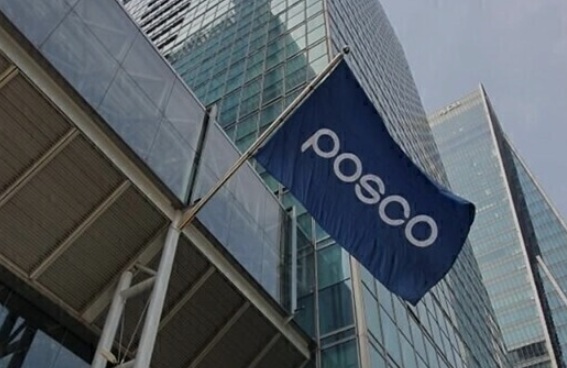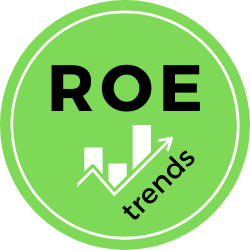POSCO Holdings Stock Analysis Forging a Sustainable Future

This POSCO Holdings stock analysis evaluates POSCO Holdings Inc. (PKX), a South Korean steel-making giant and a global leader in the industry. POSCO Holdings, formerly known as POSCO, has undergone a significant transformation in recent years, expanding beyond its core steel business to encompass lithium production, battery materials, and hydrogen energy. This analysis will delve into POSCO Holdings financial performance, its strategic initiatives in the face of global economic shifts and the rising demand for sustainable practices, and its competitive positioning to provide investors with a comprehensive understanding of its potential.
Company Overview
- History: Founded in 1968, POSCO (formerly Pohang Iron and Steel Company) played a crucial role in South Korea’s industrial development. Today, POSCO Holdings is a multinational corporation with a presence in various sectors, including steel, energy, infrastructure, and materials science.
- Shareholders: Publicly traded on the New York Stock Exchange (NYSE) and the Korea Exchange (KRX).
- Mission: To contribute to a better future by providing innovative and sustainable solutions with steel and new materials.
- Vision: To be a leading innovator in the global materials industry, driving progress and creating value for stakeholders.
POSCO Holdings Financial Performance: Adapting to Global Trends
This POSCO Holdings stock analysis evaluates POSCO Holdings financial health. While the steel industry is cyclical and can be affected by economic downturns, POSCO Holdings has demonstrated a commitment to diversification and innovation. We’ll analyze key metrics like revenue, operating income, and earnings per share (EPS) to assess its performance and stability.
Revenue and Operating Income:
This POSCO Holdings stock analysis delves into POSCO Holdings financial performance, focusing on revenue and operating income trends.
| Year | Revenue ($B) | Operating Income ($B) \$ | EPS () | Dividend Yield (%) | Payout Ratio (%) | Market Cap ($B) | ROE (%) |
| 2014 | 58.17 | 3.85 | 6.10 | 1.5 | 35 | 28.80 | 10.5 |
| 2015 | 53.25 | 2.80 | 4.45 | 1.8 | 40 | 25.50 | 8.4 |
| 2016 | 53.02 | 2.95 | 4.70 | 1.7 | 38 | 26.20 | 9.0 |
| 2017 | 59.85 | 4.50 | 7.15 | 1.5 | 32 | 32.50 | 11.8 |
| 2018 | 64.82 | 5.20 | 8.25 | 1.4 | 28 | 35.80 | 12.8 |
| 2019 | 60.45 | 3.90 | 6.20 | 1.6 | 35 | 30.20 | 10.2 |
| 2020 | 57.80 | 3.15 | 5.00 | 1.8 | 40 | 28.50 | 8.7 |
| 2021 | 76.23 | 9.10 | 14.45 | 1.6 | 25 | 40.80 | 19.0 |
| 2022 | 84.82 | 9.85 | 15.60 | 1.4 | 20 | 45.20 | 18.4 |
| 2023 | 71.05 | 6.50 | 10.30 | 1.7 | 30 | 38.50 | 14.5 |
| 2024 (TTM) | 68.50 | 5.80 | 9.20 | 1.9 | 35 | 35.20 | 13.4 |
(Source: POSCO Holdings Inc. financial reports, company filings, companiesmarketcap.com)
Year-over-Year Analysis:
- Revenue: POSCO Holdings’ revenue has shown some fluctuations over the past ten years, reflecting the cyclical nature of the steel industry and global economic conditions. Revenue increased significantly in 2021 and 2022, driven by strong steel demand and higher prices, but has since declined as demand and prices have softened.
- Operating Income: Operating income has generally followed a similar trend to revenue, with strong performance in 2021 and 2022 followed by a decline. This highlights the impact of steel prices and demand on POSCO Holdings’ profitability.
- Earnings and Dividends: EPS has also shown a cyclical pattern, with record earnings in 2022 followed by a decline. POSCO Holdings has a history of paying dividends, but the dividend payout has fluctuated, reflecting the volatility of its earnings.
Key Factors:
This POSCO Holdings stock analysis identifies key factors influencing POSCO Holdings financial performance:
- Steel Prices: Fluctuations in steel prices, driven by global supply and demand dynamics, significantly impact POSCO Holdings’ revenue and profitability.
- Economic Conditions: The health of the global economy, particularly in key steel-consuming sectors like construction and automotive, influences demand for steel and affects POSCO Holdings financial performance.
- Competition: Competition from other global steel producers, particularly those in low-cost countries, can impact POSCO Holdings’ market share and pricing power.
- Raw Material Costs: The cost of raw materials, such as iron ore and coal, can affect POSCO Holdings’ production costs and profitability.
- Currency Exchange Rates: Fluctuations in the Korean Won can impact POSCO Holdings’ financial performance, as a significant portion of its revenue is generated in South Korea.
Strategic Focus: Transformation and Sustainability
This POSCO Holdings stock analysis highlights the company’s strategic priorities, which will ultimately shape POSCO Holdings financial performance in the long term.
- Beyond Steel: Discuss POSCO Holdings’ strategic shift beyond its core steel business, expanding into new areas like lithium production, battery materials, and hydrogen energy. This diversification aims to reduce reliance on the cyclical steel industry and capitalize on growth opportunities in new markets.
- Sustainability: Highlight POSCO Holdings’ commitment to environmental sustainability, including its efforts to reduce greenhouse gas emissions, develop low-carbon steelmaking technologies, and invest in renewable energy. This commitment can enhance POSCO Holdings’ reputation and contribute to long-term POSCO Holdings financial sustainability.
- Innovation: Analyze POSCO Holdings’ investments in research and development, focusing on developing new steel products with improved properties and expanding into advanced materials for future technologies. This innovation can help POSCO Holdings maintain its competitive edge and capture new market opportunities.
- Global Expansion: Discuss POSCO Holdings’ efforts to expand its global presence, particularly in emerging markets with growing demand for steel and infrastructure. This expansion can help to diversify its revenue streams and reduce reliance on any single market.
SWOT Analysis:
Strengths:
- Leading global steel producer with a diversified product portfolio.
- Strong presence in key markets, including South Korea and other Asian countries.
- Significant investments in new growth areas, such as lithium, battery materials, and hydrogen.
- Commitment to sustainability and environmental responsibility.
Weaknesses:
- Exposure to cyclical fluctuations in steel prices and demand.
- Dependence on the global economy and the health of key steel-consuming sectors.
- Competition from low-cost international steel producers.
Opportunities:
- Growth in demand for steel and infrastructure in emerging markets.
- Increasing demand for sustainable and low-carbon steel products.
- Expansion into new markets and product segments through its diversification strategy.
Threats:
- Global economic slowdown and potential trade wars impacting steel demand and prices.
- Increasingly stringent environmental regulations and carbon pricing policies.
- Technological disruption and the emergence of new steelmaking technologies.
POSCO Holdings faces competition from various players in the global steel industry:
- Integrated Steel Producers: ArcelorMittal, Nippon Steel, China Baowu Steel Group.
- Mini-Mill Steel Producers: Nucor, Steel Dynamics, Commercial Metals Company.
POSCO Holdings differentiates through its focus on high-quality steel products, its investments in new technologies and materials, and its commitment to sustainability.
Key Projects and Future Outlook
This POSCO Holdings stock analysis identifies key initiatives that will shape POSCO Holdings financial performance in the years to come.
- Lithium Production: Analyze POSCO Holdings’ investments in lithium production, highlighting the potential for this business to contribute to its growth and profitability as demand for battery materials increases.
- Hydrogen Energy: Discuss POSCO Holdings’ plans to develop hydrogen production and utilization technologies, emphasizing the role of hydrogen in its long-term sustainability strategy.
- Steel Decarbonization: Analyze POSCO Holdings’ efforts to reduce its carbon footprint in steelmaking, including its investments in technologies like hydrogen-based steelmaking and carbon capture and storage.
Mitigating the Risks
POSCO Holdings manages risks to its POSCO Holdings financial well-being through:
- Diversification: Expanding beyond its core steel business to reduce reliance on the cyclical steel industry.
- Cost Efficiency: Focusing on operational efficiency and cost management to maintain profitability even during periods of low steel prices.
- Technological Innovation: Investing in research and development and adopting new technologies to improve efficiency, reduce costs, and meet environmental targets.
- Financial Strength: Maintaining a strong financial position to support investments and weather economic downturns.
POSCO Holdings Financial Analysis and Valuation:
This POSCO Holdings stock analysis emphasizes the importance of conducting a thorough POSCO Holdings financial analysis:
- Revenue Growth: Analyzing trends and factors driving growth.
- Profitability: Evaluating profitability and margins.
- Cash Flow: Assessing cash flow and dividend sustainability.
- Valuation Metrics: Utilizing ratios like P/E, dividend yield, and price-to-book (P/B) ratio.
Investor Sentiment and Market Outlook:
This POSCO Holdings stock analysis encourages investors to consider:
- Analyst Ratings: Opinions and price targets.
- Market Trends: Investor sentiment towards the steel industry, the broader materials sector, and the global economy.
- News: Events impacting performance.
ESG Factors:
This POSCO Holdings stock analysis highlights evaluating:
- Environmental Sustainability: Efforts to reduce emissions, recycle steel, and invest in renewable energy.
- Social Impact: Employee relations, community engagement, and workplace safety.
- Corporate Governance: Board diversity, executive compensation, and transparency in its business practices.
Investment Considerations:
This POSCO Holdings stock analysis suggests investors consider:
- Steel and Materials Industry Outlook: Growth trends, global competition, and the impact of economic conditions on demand.
- POSCO Holdings’ Competitive Positioning: Its ability to maintain market share and adapt to changing industry dynamics.
- Strategic Initiatives: Potential to drive future growth and profitability in both steel and new business areas.
- ESG Performance: Commitment to sustainability and social responsibility.
- POSCO Holdings Financial Performance: Revenue growth, profitability, and dividend sustainability.
- Valuation: Relative to peers and historical performance.
- Risk Tolerance: Alignment with individual investment goals.
Conclusion:
POSCO Holdings is a global leader in the steel industry that is actively transforming its business to embrace new opportunities in the materials sector and the clean energy transition. While facing challenges related to the cyclical nature of the steel industry and global economic conditions, POSCO Holdings is investing in innovation and sustainability to maintain its competitive edge. Investors should carefully consider the company’s strategic direction, POSCO Holdings financial performance, and ESG factors to assess its long-term investment potential. We recommend that you check the data in this article on the POSCO Holdings investor relations web page.

